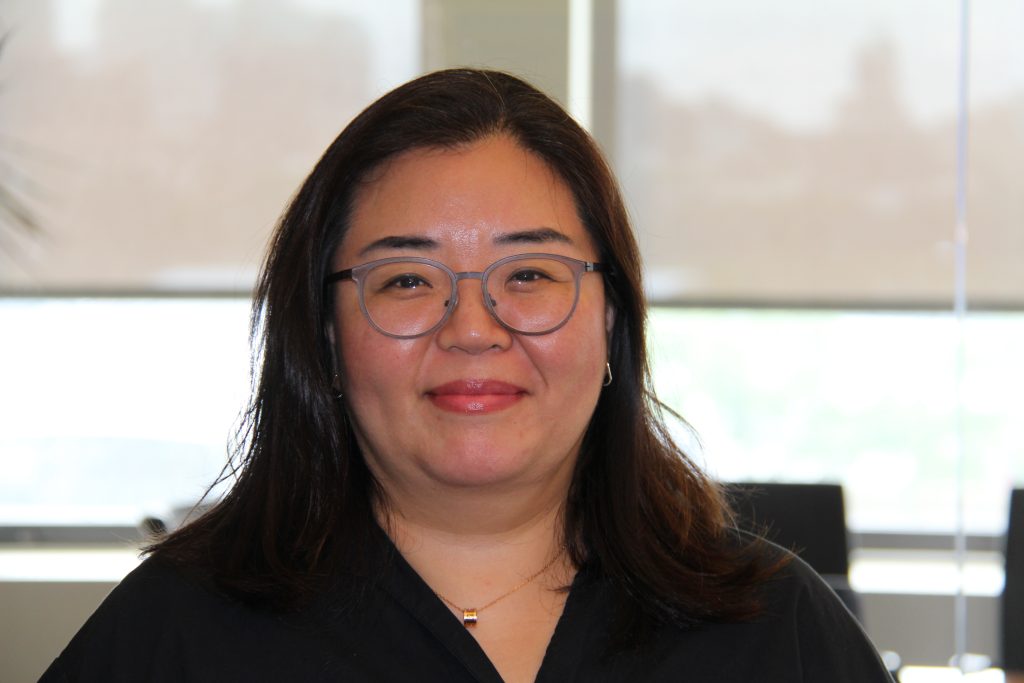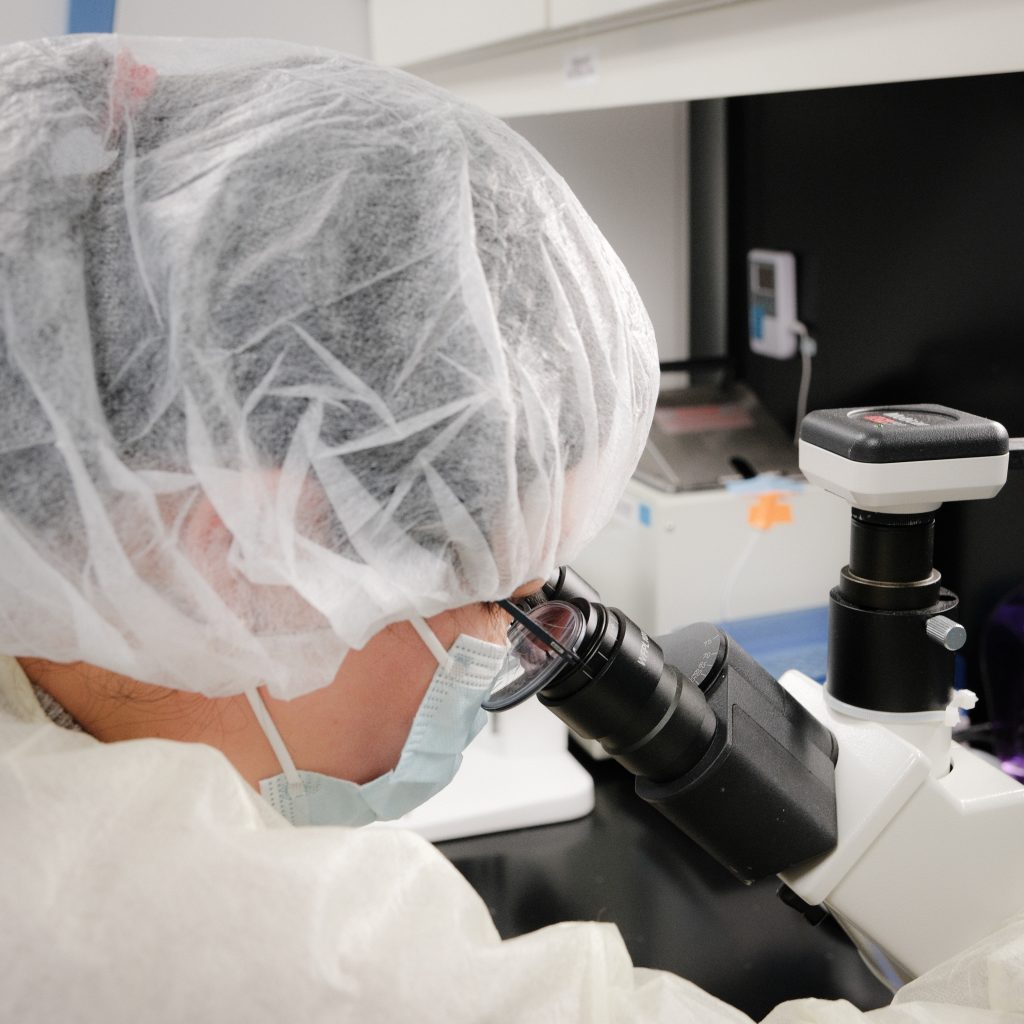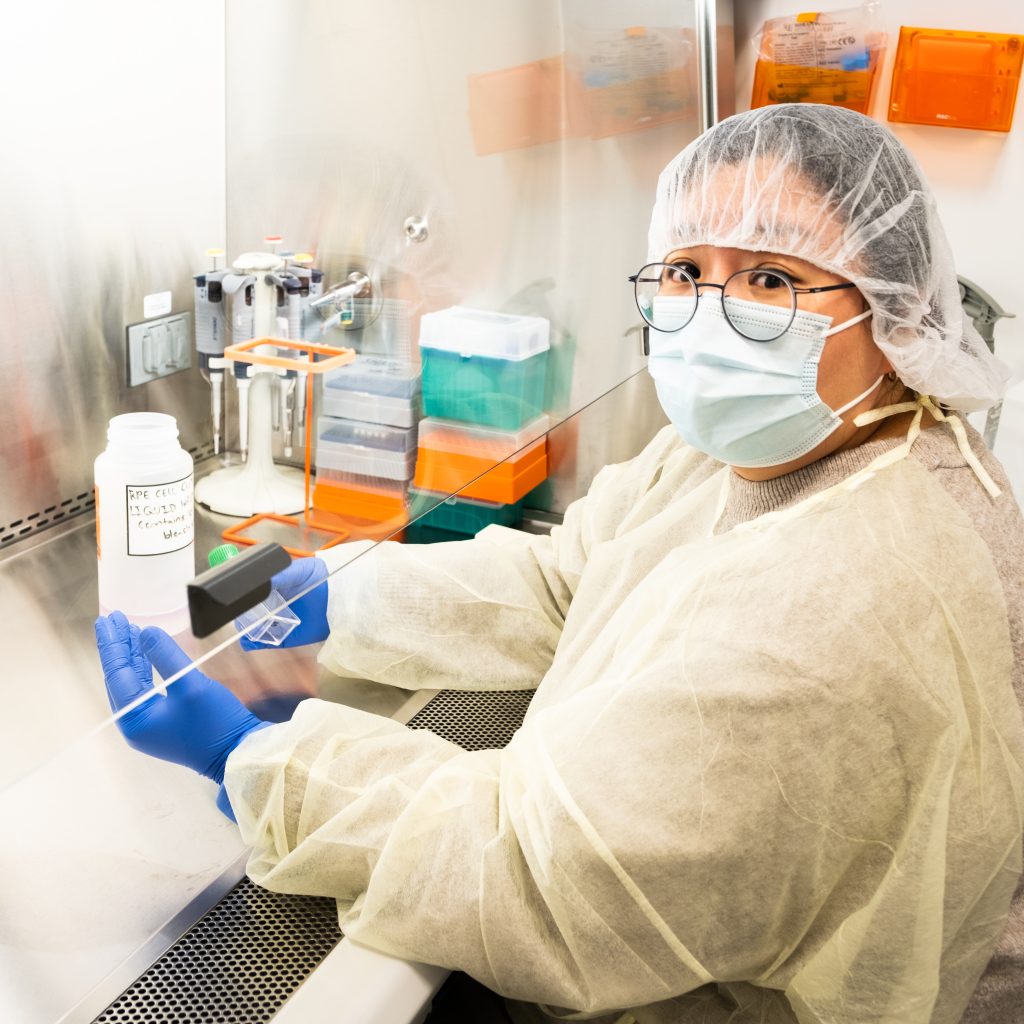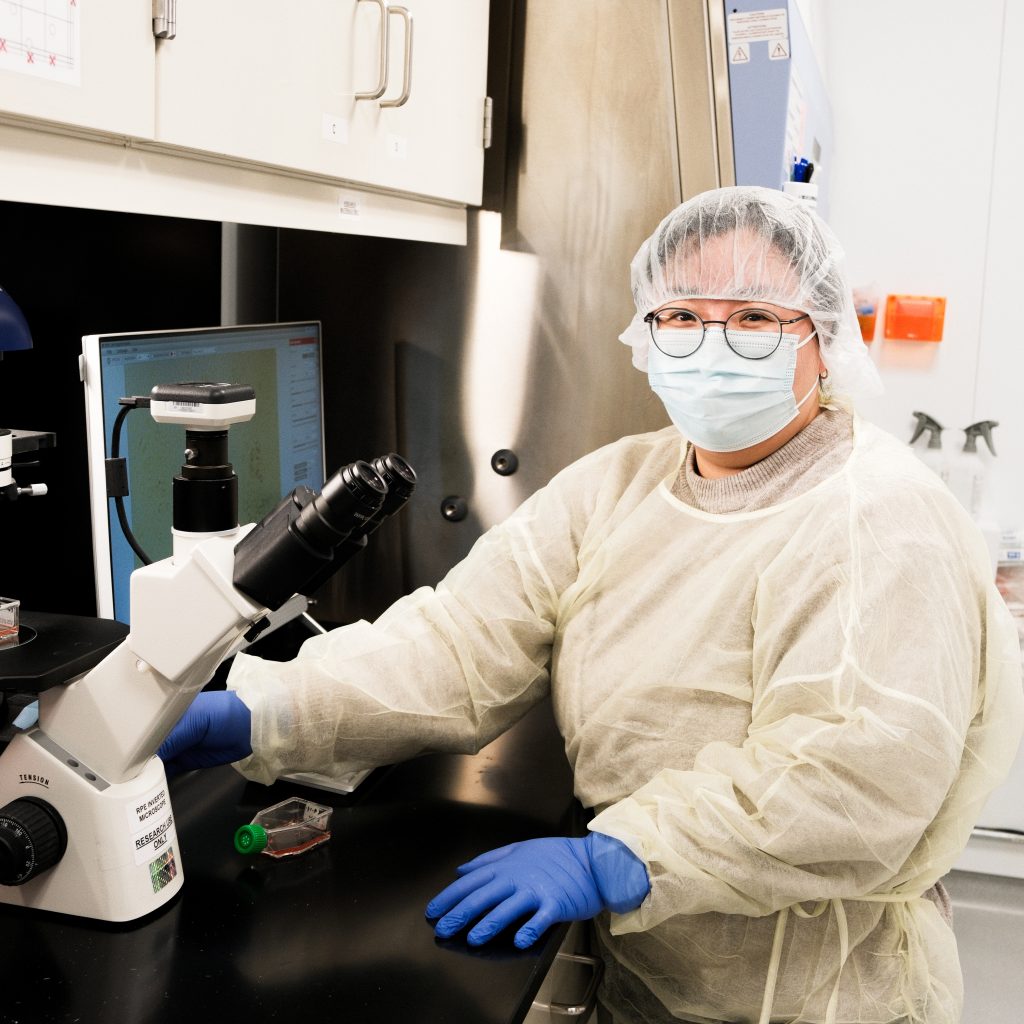Age-Related Macular Degeneration Interview with YoneJung Yoon, Ph.D.

February is Age-Related Macular Degeneration (AMD) Awareness Month, an observance established by the American Macular Degeneration Foundation in 2008 to raise awareness about the national prevalence and impact of the disease. Nearly 20 million Americans over the age of 40 have been diagnosed with some form of Macular Degeneration. There is currently no cure for the disease, which is why AMD research is so important. Led by YoneJung Yoon Ph.D., The Eye-Bank’s Ocular Research Department provides donor eye tissue to AMD researchers. To learn more about the vital role eye donation plays in advancing AMD research, we recently sat down with Dr. Yoon. Her answers to our questions are shared below.

Q: What is Age-Related Macular Degeneration?
A: Age-Related Macular Degeneration is when the macula, the central part of the retina, is damaged or deteriorates over a period of time.
Q: What are the primary causes of AMD, and how can an individual reduce their risk of developing the disease?
A: Age and family medical history are risk factors for AMD as are high blood pressure and obesity. People who smoke cigarettes are up to four times more likely to develop AMD than people who do not smoke. Routine eye exams are important. Early detection and diagnosis can delay the progression of the disease.
Q: What is the typical age for someone to have AMD?
A: Anyone can get it. But people who are over the age 75 are at a much higher risk.

Q: How has The Eye-Bank contributed to AMD research?
A: The Eye-Bank prepares ocular tissue to the specifications of a variety of researchers who are working on specific projects related to developing treatments for AMD. We also grow specialized ocular cell cultures that can be used in AMD drug testing to help determine the effectiveness of new treatments.
Q: Does The Eye-Bank require a special consent to place eye donor tissue with a researcher?
A: Yes, in order to place donor eye tissue with a researcher, the eye donation must be consented for research purposes. Consent for research can be documented through the New York State Donate Life Registry or at EyeDonation.org.

Q: What message would you give someone who wants to sign up as an eye donor for both transplant and research purposes?
A: Your donation plays an important role in shaping the future. Every donation helps researchers get closer to developing treatments and cures, which benefits future generations and may also benefit your own family members one day.